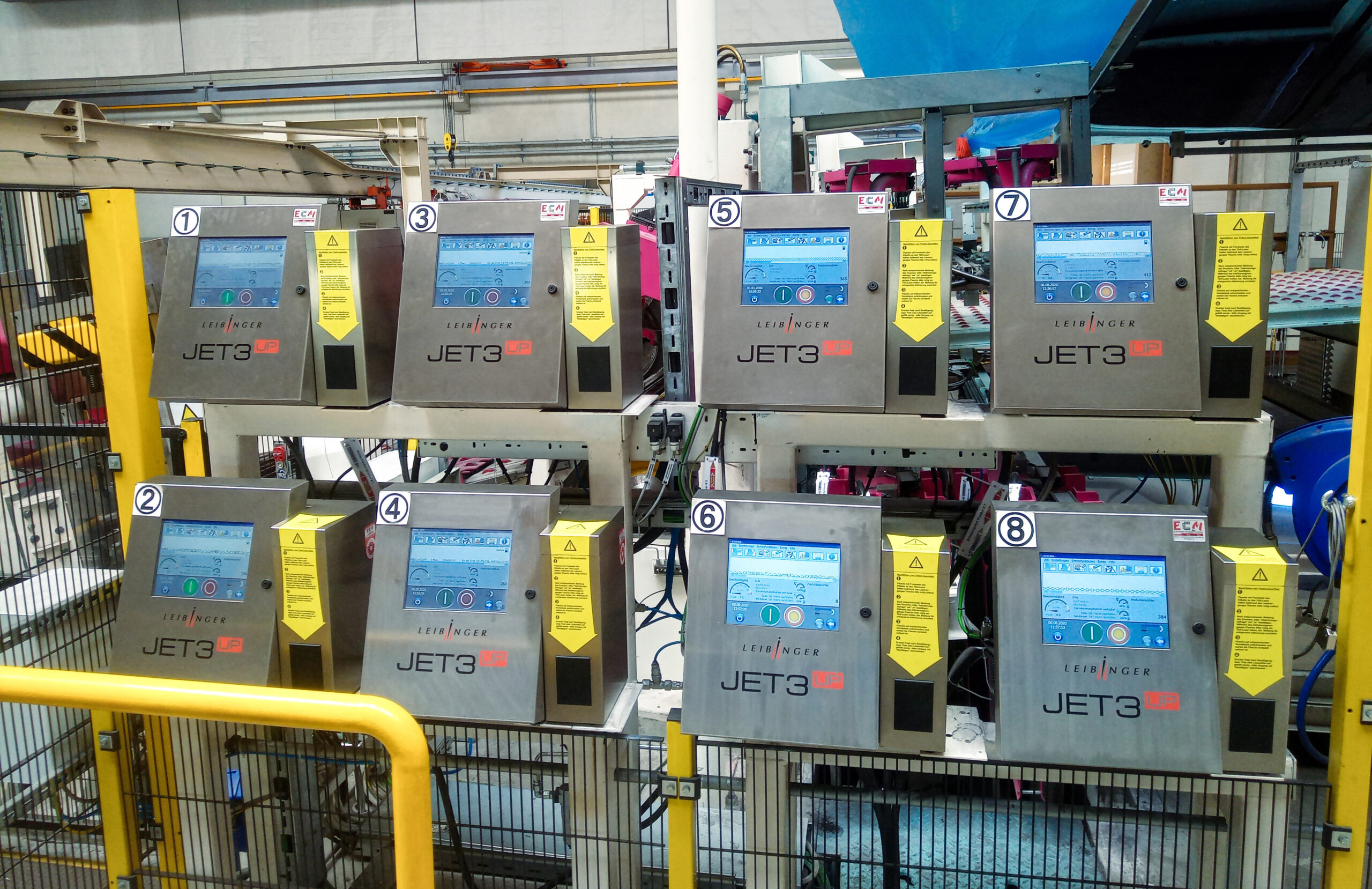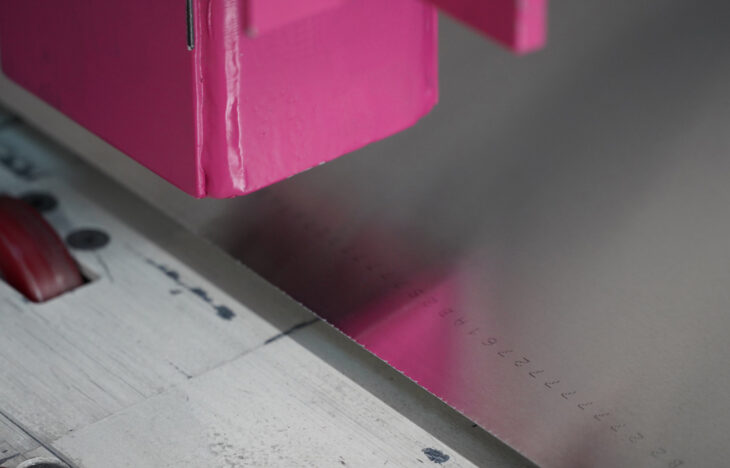AMAG Austria Metall AG utilized printers from Leibinger to implement patented marking and tracking technologies developed by its 100% subsidiary, coilDNA, on its aluminum coils produced in Ranshofen, Austria, which are supplied to the aerospace, automotive, packaging, construction, and other industries. This supports the company in ensuring traceability across its products, from raw material to finished product.
“The installation of the printers and related equipment during ongoing production — without interrupting it — presented the team with a special challenge, which was solved to our complete satisfaction and on schedule thanks to excellent project coordination,” said Dr. Werner Aumayr, head of AMAG IT.
Reliable, continuous marking with a smart coilDNA code consists of 14 clear alphanumeric characters that are strung together in the code track — and are never repeated. Each individual code element allows its exact position on the product to be determined. If data is assigned to these code elements, it can be retrieved in subsequent processing steps, regardless of how the semi-finished product was split. This enables seamless tracking of the material, its properties, and manufacturing conditions over several stages of the value chain — ideally, all the way through to the end product.
The challenge of printing a constantly changing code was solved by means of specially developed interface software based on Leibinger’s messaging protocol. Thanks to the printers’ high data processing speed, the coilDNA code can now be printed with reproducible results at process speeds of up to 500 m/min over the entire length of aluminum coils, which range from 100 to 1,000 m in length. The dot-matrix font used by the printers also provide excellent legibility, even in this high speed range.
In addition, the printer heads needed to have flexible positioning, especially for AMAG’s longitudinal slitting lines, which have up to 8 lanes of strip that need to be printed with different markings from above and from below. Leibinger was able to develop flexible head positioning that enables the printing of the rolled strips at almost any width position — even across the several lanes of the slitting lines, enabling all the slit strips to be marked individually.
As a result of the project, all of AMAG’s marking requirements were 100% met using coilDNA technology, enabling the company to provide improved traceability for its customers. “By using close to 30 LEIBINGER printers on a variety of systems in the AMAG rolling mills, the wide-ranging marking requirements of our customers from different industries are met to the fullest — and with an exceptional degree of flexibility,” said Aumayr.
The coilDNA-marked strip allow for seamless traceability of the delivered strip and sheet, as well as the parts created from them through further processing, including their properties and manufacturing parameters. Specially developed coilDNA apps enable AMAG customers to easily and quickly communicate and coordinate by the specified product once the coilDNA code has been scanned.
“The key finding from the project was that, using standard Leibinger printing protocols, even markings not provided for in the standard, such as the coilDNA code, can also be applied at high speeds,” said Aumayr. “I recommend that, before using CIJ printers in the metal producing industry, it makes sense to carry out extensive tests in terms of the material surface, marking resistance, process speed, ambient conditions, and code legibility. Leibinger and its partner carried out extremely valuable preliminary work and provided comprehensive advice. We would be happy to recommend working with them to other companies requiring this expertise.”


